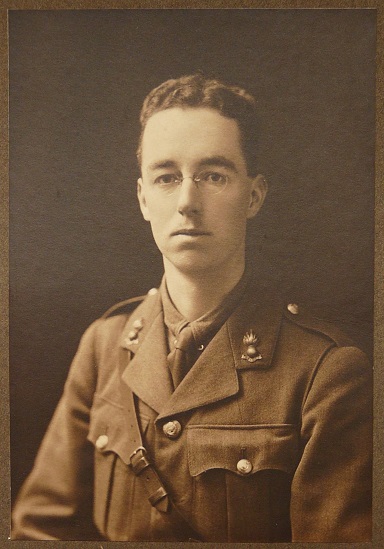
Kenneth Mallorie Priestman (B. 1904-08) of Ilkley, Second-Lieutenant in the Royal Engineers, was killed in action on the Somme, near Ancre, in France on 31st August 1916 whilst on reconnaissance work. He was 25 years old. He had been home on short leave less than a fortnight before his death.
Before receiving his commission in the Royal Engineers, in the summer of 1915, he served for some months as a voluntary motor driver in the Friends’ Ambulance Unit at the front in Flanders.
The following are extracts from letters, received from fellow officers:
“August 31st, 1916. I have to tell you very sad news. This morning your son was killed instantaneously in action whilst on reconnaissance work with his Major. A large fragment of shell must have hit and broken his spine, and he died immediately. Major ____ was very badly hit at the time, also another Officer of the Pioneers. We are only three left to carry on . . . . Your son was a particular friend of mine, and has always shewed a good grasp of the situation in very awkward corners . . . . We have lost a well beloved comrade and one of the best Officers we ever had.”
“September 2nd, 1916. Your son was killed in the advanced front line, and we had great difficulty in bringing his body in. He had to be carried over a shell swept zone, over the top, in full view of the enemy. He was buried in the cemetery just near where we are now. All the Officers of our Company attended – now reduced to three. Our parson conducted the service and men from his section acted as bearers. I am having a cross made and a frame to mark out his grave.”
The June 1917 issue of “Bootham” magazine quotes a letter from another Bootham Old Scholar. Captain J. C. Procter writes:—
“Lieutenant Priestman’s grave is well kept and has a large white cross of wood painted with his name in black letters. It is the largest cross of its sort in the cemetery, which is perhaps why I saw it. . . . The cemetery is in a little valley, ” Blighty Valley,” and will be very pretty one day. . . . It has steep wooded sides and at present is full of batteries and a little tramway runs up past the graveyard.”
